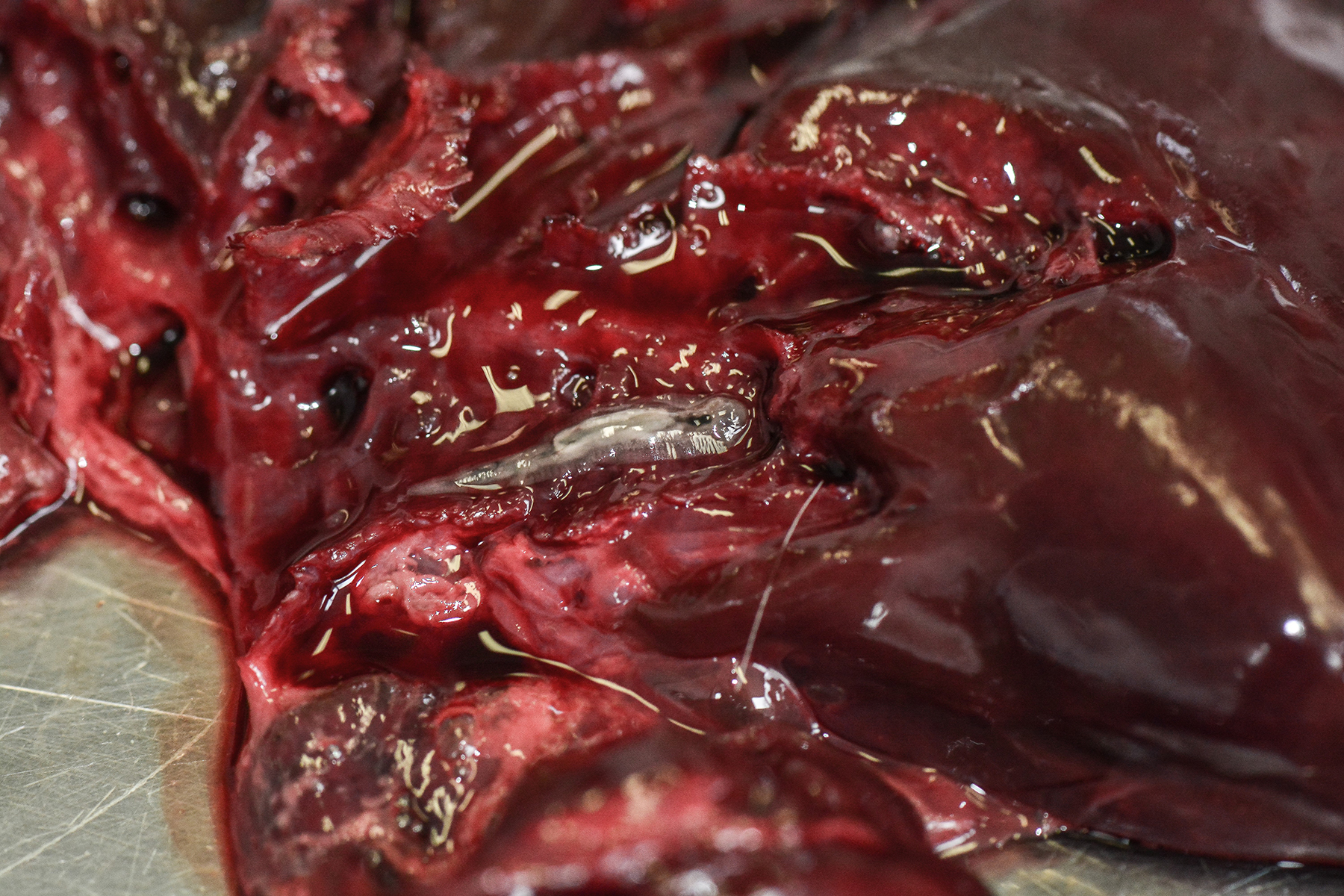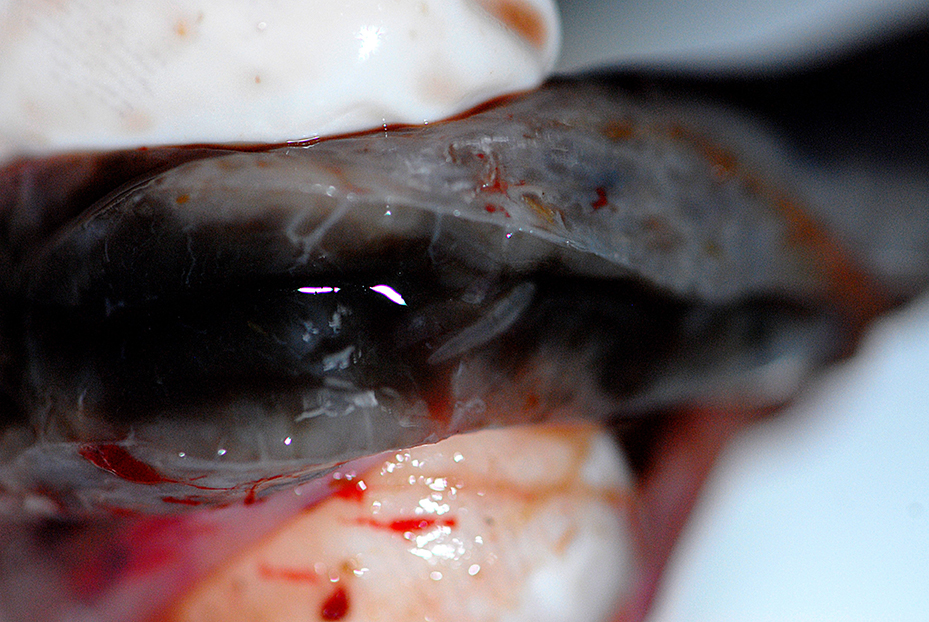Tongue Worm
(Linguatula serrata)
Linguatula serrata is a nasal pentastomid parasite of dogs and wild canids worldwide, responsible for mild to severe rhinitis and it is transmitted by ingestion of organs of infected intermediate hosts (primarily herbivores).
| Parasite: Linguatula serrata |
| Common name: Tongue worm |
| Host: Canids (Fig 1), rarely felids and humans |
| Pre-patent period: 6 months |
| Location of adults: Nasal cavities |
| Distribution: Worldwide, mostly Middle East (Iran) |
| Transmission route: Oral [ingestion of organs (lymph nodes) of intermediate hosts (ruminants, camels, rodents, lagomorphs)] (Fig 2) |
| Zoonotic: Yes |
Distribution
Linguatula serrata is distributed worldwide, with higher prevalence in Iran, Lebanon, India, and some parts of Africa (i.e., Nigeria), related mainly to the traditional pastoralist life style. In other parts of the world, the occurrence is sporadic.

Figure 1 An adult female of Linguatula serrata in the nasal cavityy of a red fox. (Image credit: Dr. A. D. Mihalca)

Figure 2 Larva of Linguatula serrata in the lymph node of a goat. (Image credit: Dr. A. D. Mihalca)
Clinical signs
Infected dogs show mild to severe clinical signs of rhinitis (unilateral or bilateral), with sneezing, nosebleed/epistaxis, and evident signs of nasal foreign body (pawing at the nose). Severity of clinical signs depends on the intensity of infection.
Diagnosis
Eggs (90 x 70 μm, larvated) can be detected in faeces by standard flotation (SOP 1) or in the nasal discharge, by fresh direct microscopic examination. However, egg shedding is intermittent and can be absent if infection is mono-sexual. Differential diagnosis should be made with other nasal foreign body syndromes.
Treatment
There is no approved drug for the treatment of canine nasal linguatulosis. Nasal flushing using warm salty water can help detachment of parasites. Surgical removal is unfeasible, as parasites may be attached deep in the sinuses. Macrocyclic lactones (milbemycin oxime, ivermectin) have been used off-label.
Control
No chemoprophylaxis is available. The access of dogs to raw organs and slaughterhouse offal should be strictly controlled. For further control options, refer to the General Considerations and Recommendations section.
Public health considerations
Humans can act both as accidental definitive host, following consumption of raw organs with nymphs, when a severe nasopharyngeal linguatulosis and/or severe allergic reactions develop (known as “halzoun”). Accidental ingestion of eggs from dog faeces, results is asymptomatic visceral linguatulosis.
